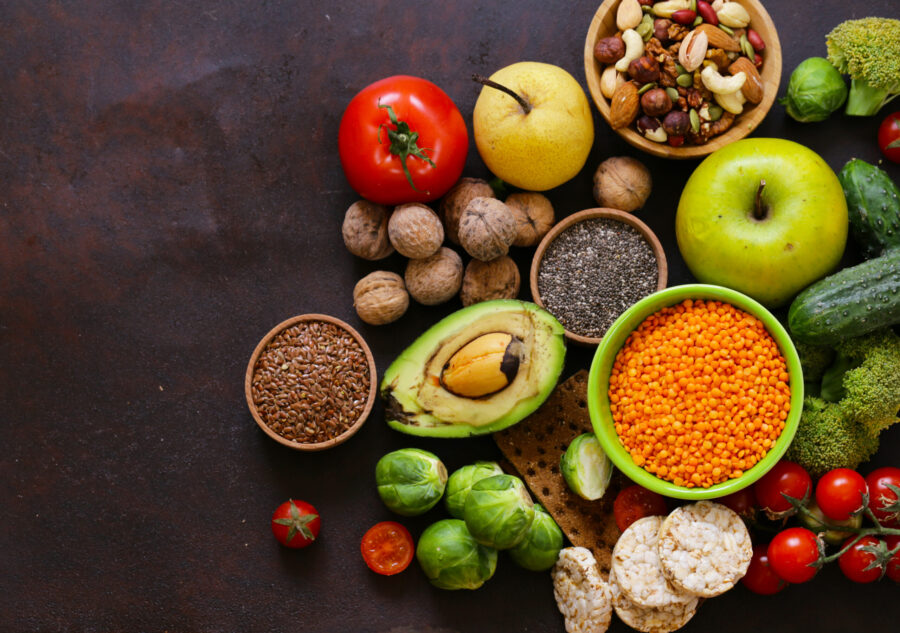What is a superfood?
A superfood is a food that is high in nutrient density. Superfoods are high in vitamins, minerals and antioxidants. Relative to other foods they have more nutrients per serving. To be clear superfoods can improve the quality of your diet and when combined with an overall healthy diet and lifestyle can help prevent disease or even reverse disease. They are not a panacea; they cannot take the place of a poor diet.
The Top 10 superfoods
1. Berries
Berries are high in Vitamin C, antioxidants, and fiber. There are so many different types; blackberries, blueberries, strawberries, goji berries, and acai berries. A serving size is 1/2 cup. My favorite way to consume berries is as a snack. Simply have a handful and you have a fiber filled nutrient dense snack. You can also add them to yogurt, salads, smoothies, etc.
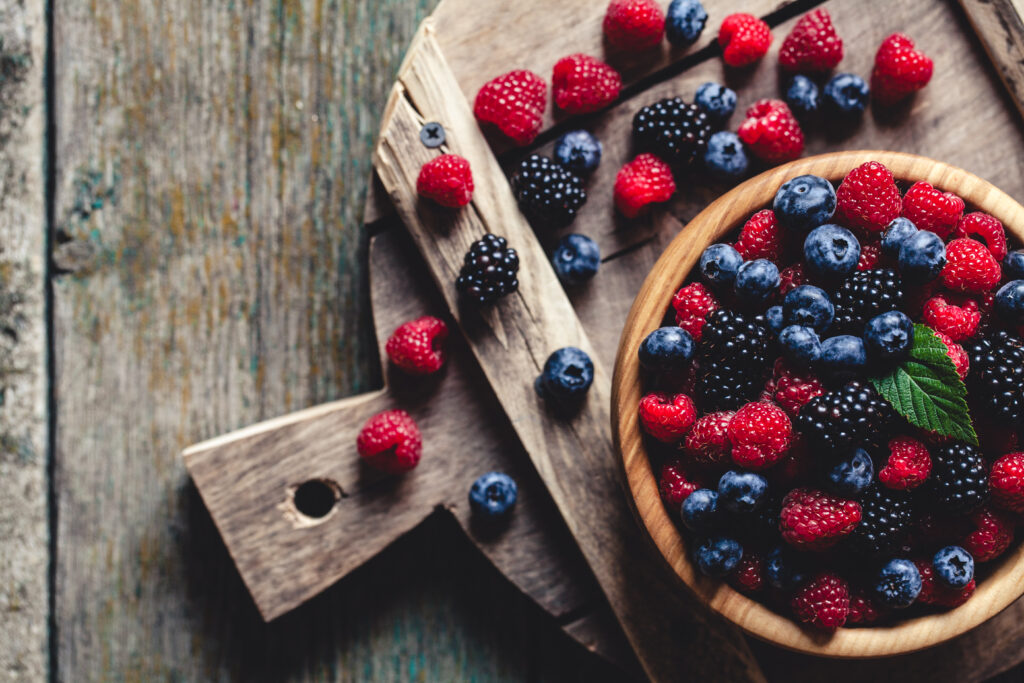
2. Cruciferous vegetables
These vegetables which include broccoli, cauliflower, and kale are packed with sulforaphanes, strong antioxidants which have strong cancer-fighting properties. They also have strong anti-inflammatory properties.
Some people find that cruciferous vegetables have a bitter flavor. The sprouts have a milder flavor so consuming sprouts is a great way to reap the benefits if you do not like the taste. I sprinkle sprouts on salads or add them to sandwiches. I love to roast broccoli or brussels sprouts with a little bit of garlic.
3. Dark chocolate
Really it is the cacao that is responsible for the distinction as a superfood. Cacao is rich in flavonoids. Flavonoids have strong antioxidant properties and are known to prevent heart disease and boost immunity.
When consuming dark chocolate, beware of other unhealthy additives like sugar, dairy, and other preservatives and emulsifiers. The best way to receive the benefit without the negatives is to consume the unprocessed form. You can add cacao powder to oatmeal or sprinkle cacao nibs in smoothies or on smoothie bowls. A nut butter sandwich with cacao nibs is a nice treat too.
4. Beans and legumes
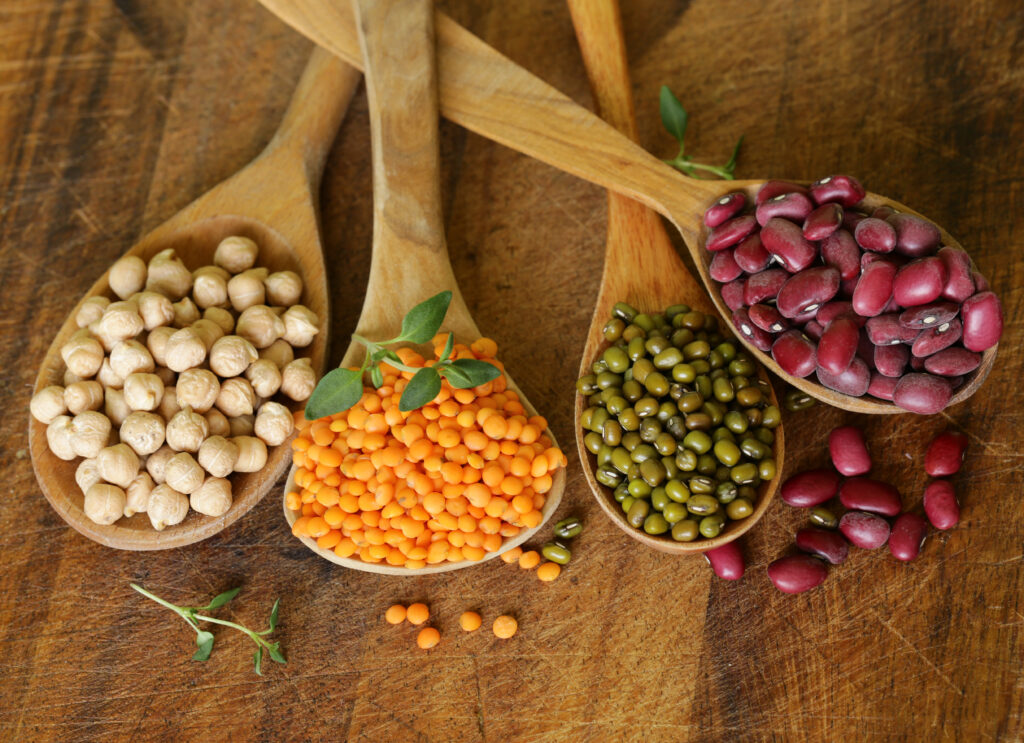
This group includes beans, lentils, peas, and peanuts. They are loaded with fiber and B Vitamins, minerals and they are a great source of protein. Consumption of beans and legumes is associated with better glucose control and lower cholesterol and blood pressure. They also promote healthy weight through their fiber content.
Beans are great in soups, dips, and as a substitute for meat in many meals.
5. Grapes
The resveratrol, a polyphenol found in the skin of grapes, is a powerful antioxidant. In addition to general antioxidant properties, it has positive effects on brain and heart health, diabetes complications, and overall inflammation. Grapes also contain another powerful compound quercetin, a flavonoid. Quercetin is an anti-inflammatory and may reduce the risk of atherosclerosis.
The best way to take advantage of these benefits is to eat grapes. Frozen grapes are a great summer treat. Red wine may also give some benefits but consumption of alcohol has negative effects that may blunt the benefits.
6. Garlic
Is a good source of manganese, Vitamin C, Vitamin B6, Selenium, and fiber. Garlic has a positive effect on your immune function in addition to lowering cholesterol and blood pressure. It may even decrease your risk of cancer.
You can bake whole garlic with a bit of olive oil and use it as a spread for whole grain or sourdough bread. One of my favorite uses of raw garlic is in pesto.
7. Yogurt, kefir, and other fermented foods
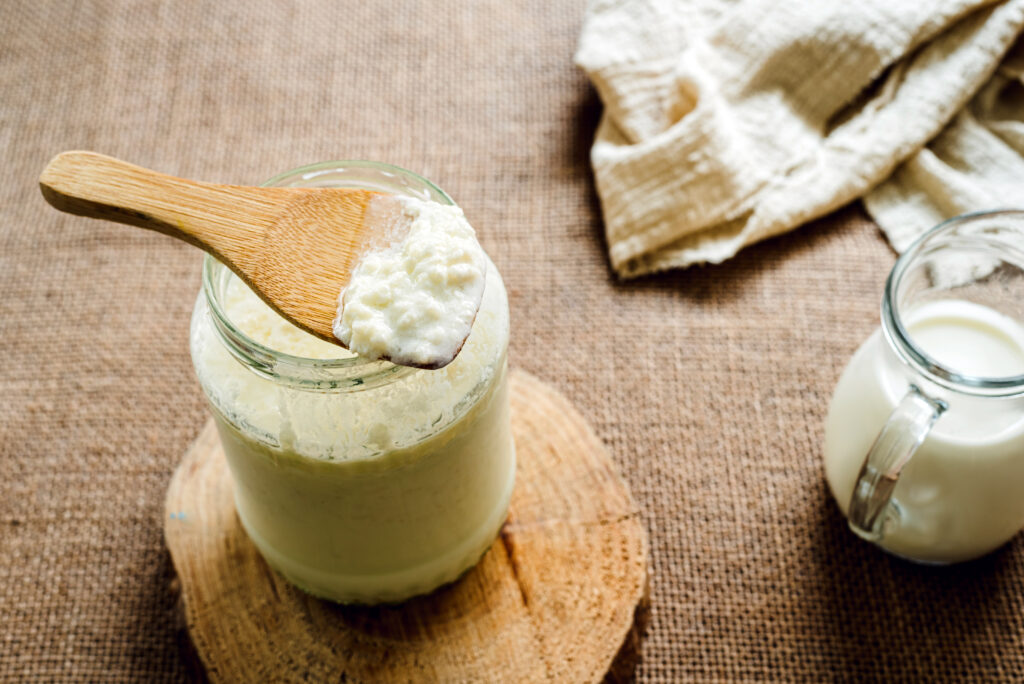
Fermented foods have probiotics that have a positive effect on the microbiome. They may also lower cholesterol, blood pressure and decrease inflammation.
Kefir and yogurt are usually made with dairy but there are many non-dairy options available. They can be made from coconut milk, rice milk, and coconut water. Beware of the sugar content when purchasing these foods. Other great fermented options are kimchi and sauerkraut.
8. Dark Green Leafy Vegetables
Including spinach, kale, collard greens, and Swiss chard are nutrient-dense. They are great sources of fiber, antioxidants, and other nutrients including folate, zinc, calcium, and iron. They are anti-inflammatory due to the carotenoids they contain and they help prevent chronic diseases including heart disease and hypertension.
I love adding them to everything. Spinach has a mild flavor and is a great addition to soups, pasta dishes, and even smoothies. I love to use a variety of different leafy greens in pesto.
9. Nuts and Seeds
Nuts and seeds are rich in fiber and protein. They are also high in antioxidants and may have a protective effect on the heart. Though they are high in fat it has been demonstrated they may actually help with weight management.
They are best raw or dry roasted. Beware of nuts with added oils. I like to add walnuts to salads and in pesto. Sunflower seeds are also a great addition to salads for an added crunch.
10. Apples
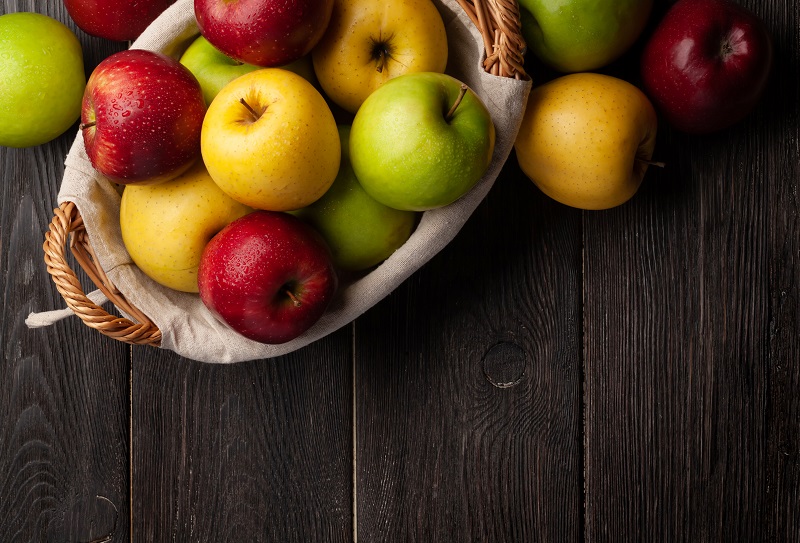
Yes, an apple a day really can keep the doctor away. Simple and readily available, apples are a great superfood. They are nutrient-dense and packed with fiber. They are a good source of vitamin C and antioxidants. Since they are packed with fiber, they are filling and make a perfect low-calorie snack.
Summary
The bottom line is the best diet contains a wide variety of fruits and vegetables. It also includes beans, legumes, nuts seeds, and whole grains. It is the quality of your overall diet not the addition of superfoods that makes a difference.

